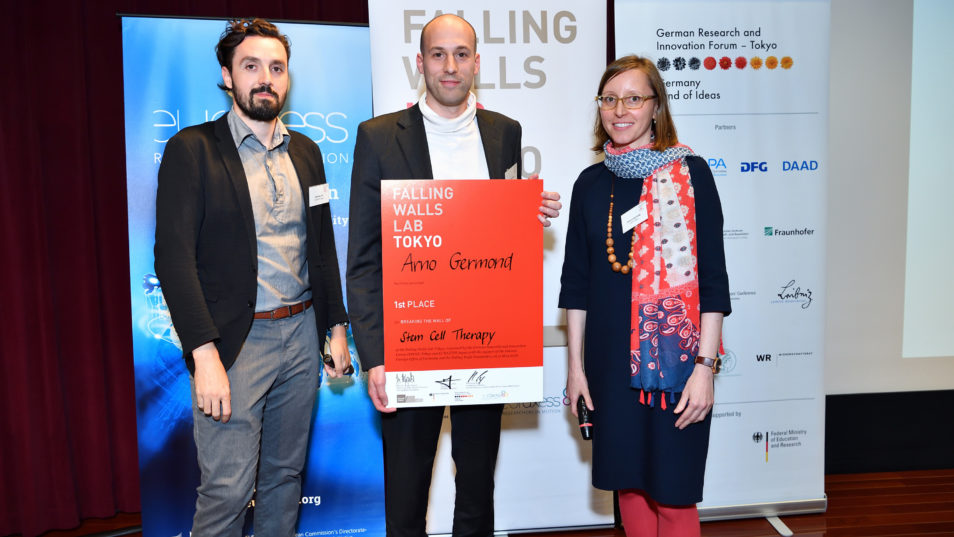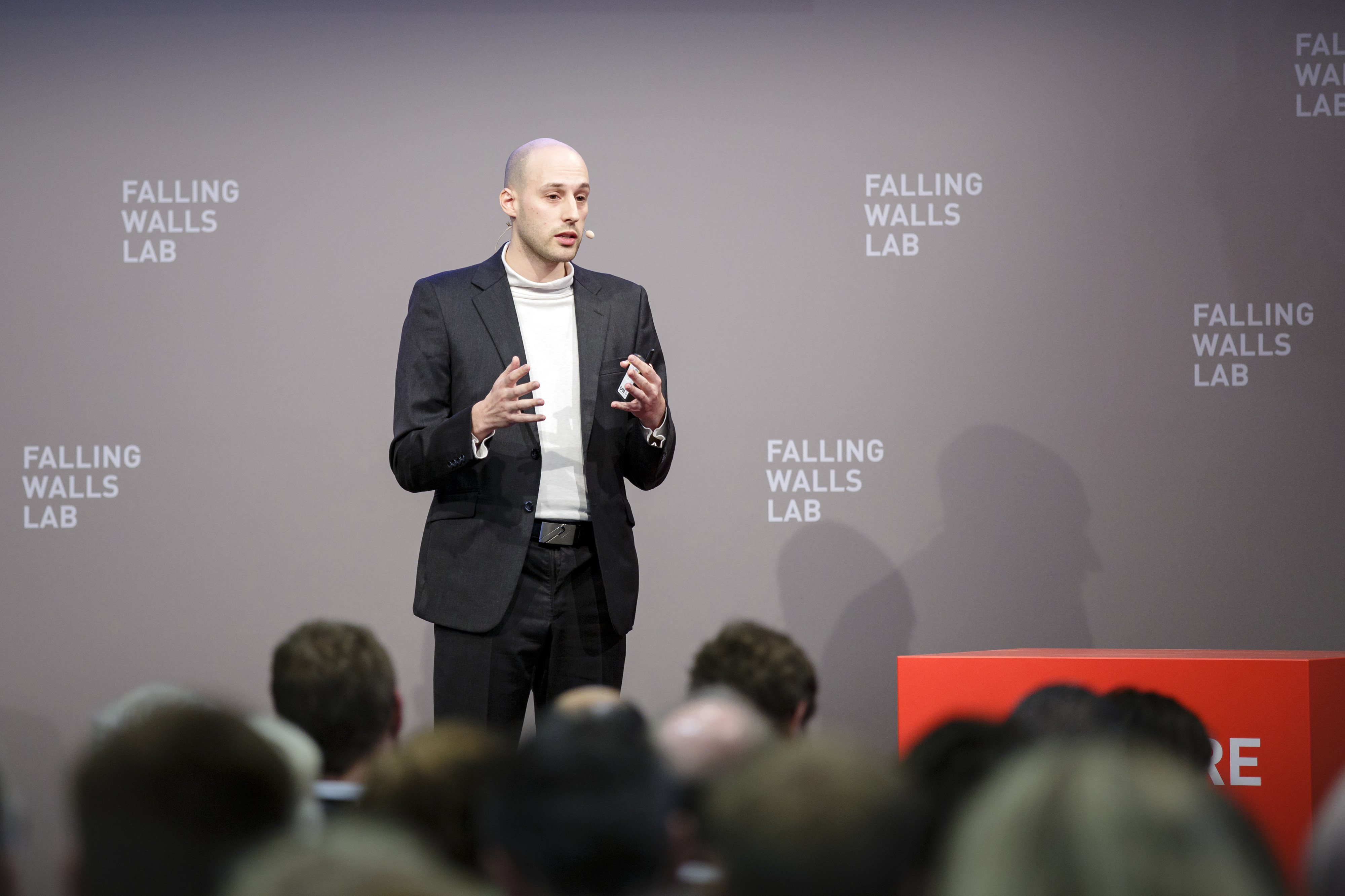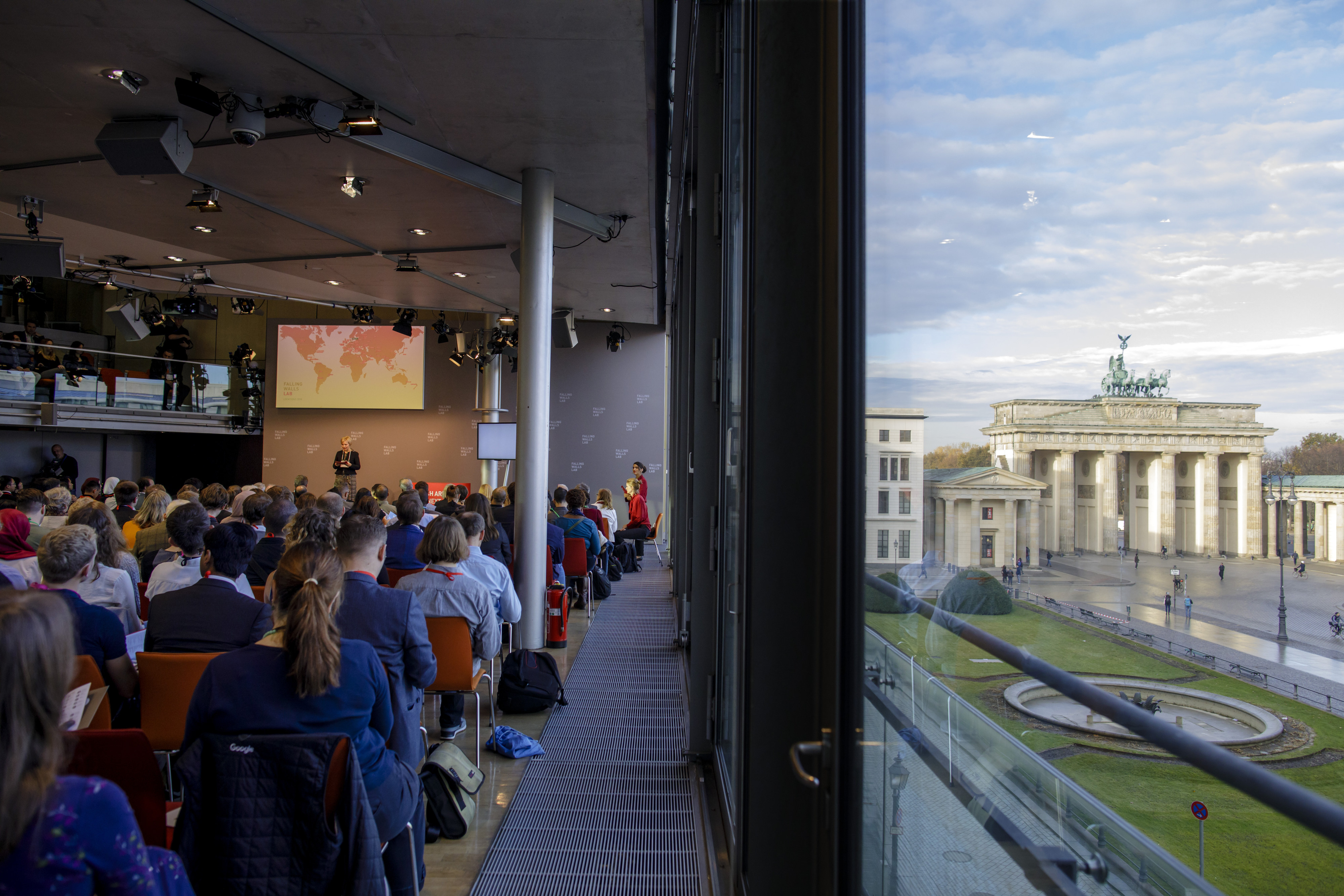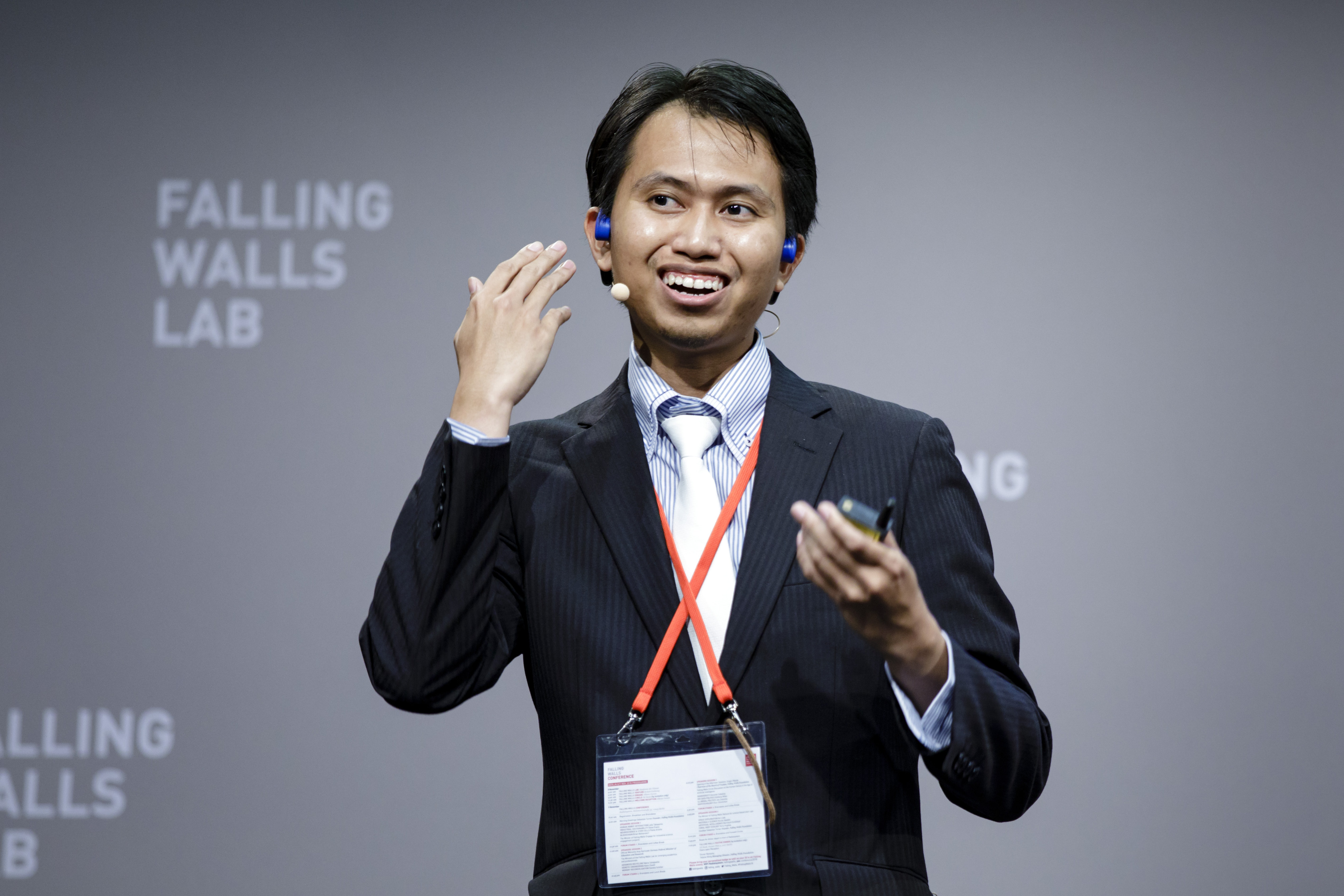Falling Walls Lab Tokyo 2018
 © DWIH Tokyo
© DWIH Tokyo
Falling Walls Lab Tokyo 2018, jointly organized by the German Research and Innovation Forum Tokyo (DWIH Tokyo) and EURAXESS Japan, was hosted by The University of Tokyo on May 12th, 2018. The format of a by now internationally well-established science communication contest was originally developed by the German Falling Walls Foundation in Berlin. In Tokyo the Falling Walls Lab was conducted for the third time.
“Breaking down various walls”, is the moto under which young scientists presented their research findings stressing its potential path-breaking impact. – As the format requests their presentations were strictly limited to 3-minute timed talks held in English. 15 young researchers were selected to present their ideas and initiatives at the competition on May 12th, 2018. Though each of the presented research projects reflects different specializations of study and application fields, the speakers successfully shared their ideas with the audience and conveyed what drives them on in their research. The topics ranged from the role of a “EU identity” to uphold integration in the EU, through the targeted penetration of tumor membranes for medicine delivery to improving flood forecasting in the context of global warming.
A distinguished jury composed of professors and industry representatives both from Japan and international background. The jury evaluated the individual presentations based on three key criteria (“Breakthrough-factor”, “Relevance & Impact” and “Performance & Structure”). An interactive Science Communication workshop by Caitlin Devor, Science Communicator based at the University of Tokyo, draw in the audience to engage being listeners to 15 science talks. The workshop demonstrated barriers and bridges to science communication and warmed up speakers, jury members and audience alike for the networking reception.
The 3 Winners of the Falling Walls Lab were announced hereafter: Arno Germond, Postdoc at the Institute for Physical and Chemical Research (RIKEN), was awarded the first prize for his research on a cost-efficient way to evaluate stem-cells in a reliable manner. As winner of the FWL Tokyo, Arno will receive an invitation and a flight ticket to attend the FWL Finale on November 8 in Berlin, in which the winners of the around 60 FWL worldwide are going to participate. The price for runner-up was given to Irwansyah, PhD student at Kumamoto University, for his presentation on binaural hearing with bone conduction. Irwansyah will as well participate in the FWL Finale in Berlin. The third place, voted for by the audience, was awarded to Mohamed Batran, Master student at the University of Tokyo, for introducing a method relieve traffic congestion using Big-Data. The evening concluded with a reception and vivid discussion and networking between all participants present.
The Falling Walls Lab format was launched 2011 in Berlin and the finale is conducted annually on the day of the fall of the Berlin Wall. Around 80 Falling Walls Labs are held worldwide, partly with labs taking place in different cities of the same country. Winners of all local Labs qualify for the finale in Berlin on November 8. In Japan, Tokyo (since 2016) and Sendai invite applications for the annual Falling Walls Lab events. The Tohoku University was the first institution to host a FWL in East Asia in 2014.
Falling Walls Lab Tokyo 2018, The winners
1st Place
Arno Germond
RIKEN
“Breaking the Wall of stem cell therapy”
2nd Place
Irwansyah
Kumamoto University
“Breaking the Wall of binaural hearing with bone conduction”
3rd Place
Mohamed Batran
The University of Tokyo
“Breaking the Wall of Congestion using Big-Data”



First and second FWL Tokyo winner 2018 presenting at the FWL Finale in Berlin (November 2018).
The Jury
- Bernard Chenevier
Okayama University - Yuko Fujigaki
The University of Tokyo - Matsuo Kawabata
- Yoshiaki Maeda
Tohoku University - Yukou Mochida
State of Bavaria-Japan Office - Yoshifumi Nishida
Living Intelligence Research Team at AIRC - Krisztina Rosner
Meiji University
